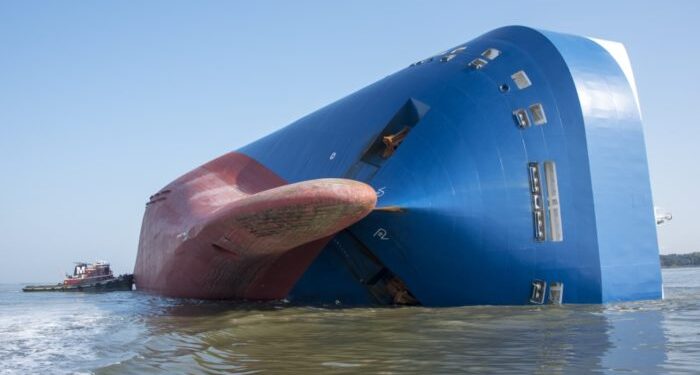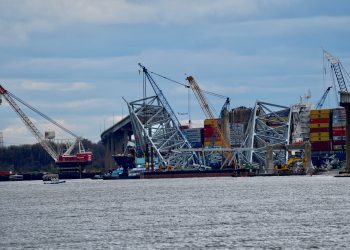The last sections of the wrecked car carrier Golden Ray were removed from the waters near Brunswick, Georgia six months ago, but the legal battles over the shipwreck are far from over.
According to the latest information, the Georgia county filed suit in U.S. Federal Court alleging negligence both against the ship’s owners and operators as well as the salvage company for environmental damage and lost tax revenues.
The suit is seeking monetary restitution from the shipping line and the salvage company, as well as an order that the defendants pay for the cleanup of oil and other debris released during the salvage effort.
After the capsizing and rescue, approximately 320,000 gallons of fuel, mixed with water, were pumped out by December 12, 2019. They however note that 44,000 gallons of petroleum products, hazardous substances, and 4,200 cars remained
the filing stated.
More specifically, the suit gives emphasis on the negligence of the ship’s crew as highlighted in the 2021 report from the National Transportation Safety Board. The suit claim that Hyundai Glovis is responsible for the negligence in loading the vessel and failure to take proper steps to prevent the Golden Ray from becoming top-heavy.
The NTSB also discovered that the chief officer’s error in estimating the weight of the caused an incorrect determination of the ship’s stability which then led the vessel to heel over during a turn as she departed Brunswick.
Furthermore, the suit cites negligence on behalf of the savage company, noting that they misrepresented the scope of work and failed to properly protect against discharges that harmed the environment.
Namely, the suit highlights that the salvage operation lasted far longer than the original schedule provided by the salvage team, while the salvage company, T&T, deployed an environmental barrier that they said would contain spills and debris. However, according to the suit, T&T misrepresented the threat from oil spills saying it was “minor and controllable.”
The county is now asking the court to award it restitution for the damages caused by the vessel heeling over in its coastal waters including the environmental contamination caused by the wreck and the cost of the cleanup.
In fact, it cites the cost of repairing the damage, lost tax revenues, and harm done to the tourism and fishing industries, as well as property owners in the area.
During 2022, Georgia’s Environmental Protection Division imposed its largest ever fine against Hyundai Glovis, which was ordered to pay $3 million for the discharge of oil and pollutants into the waterway.




























































